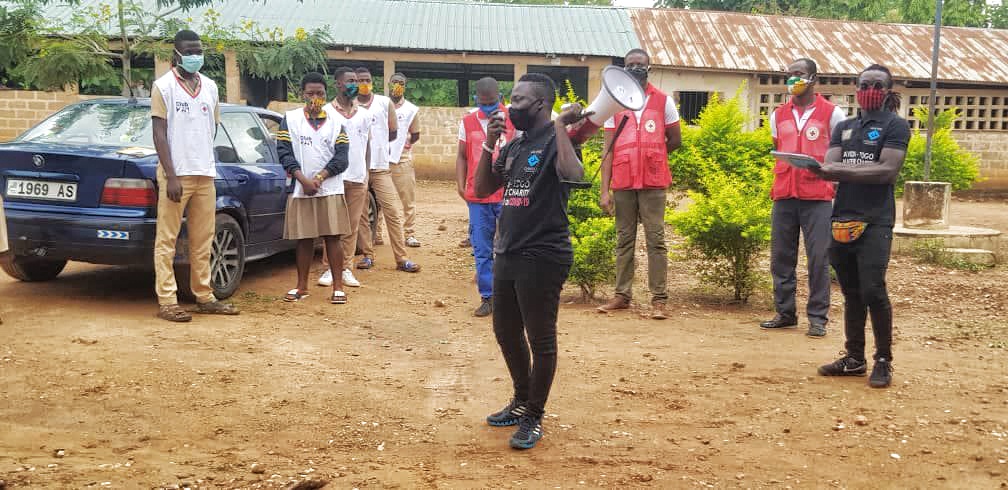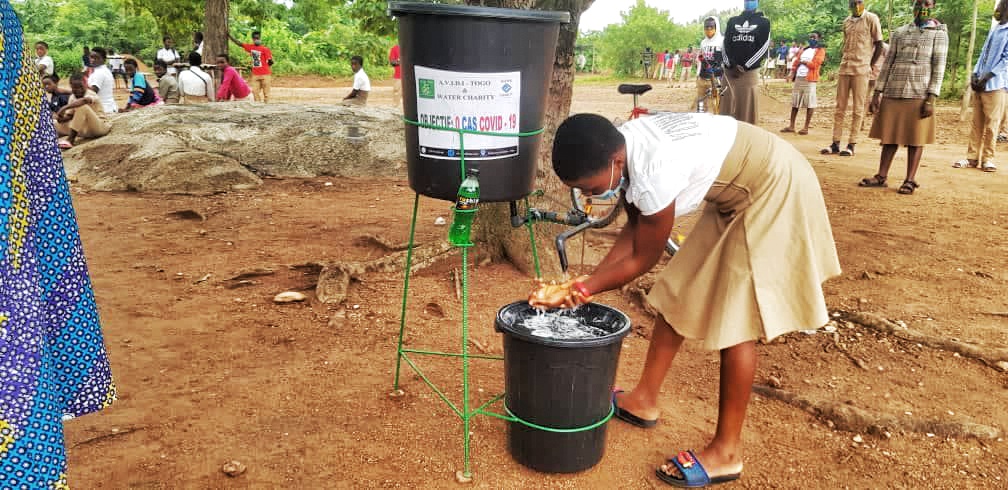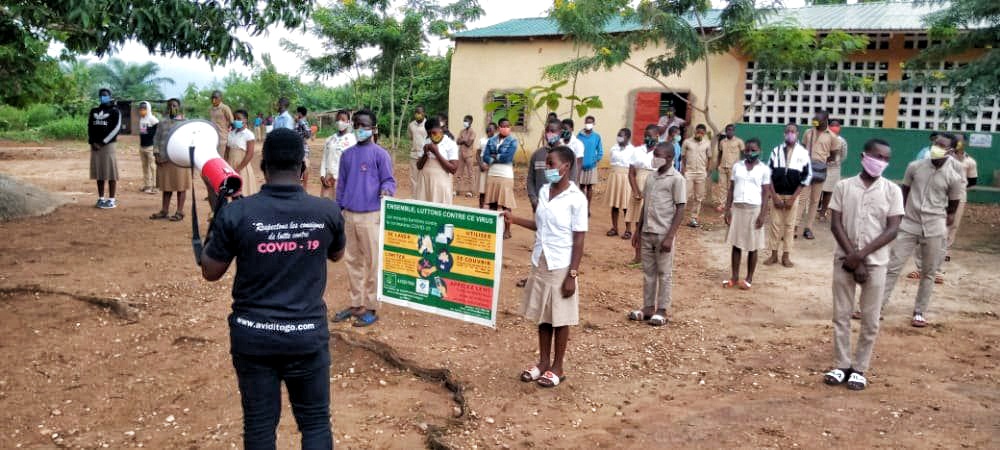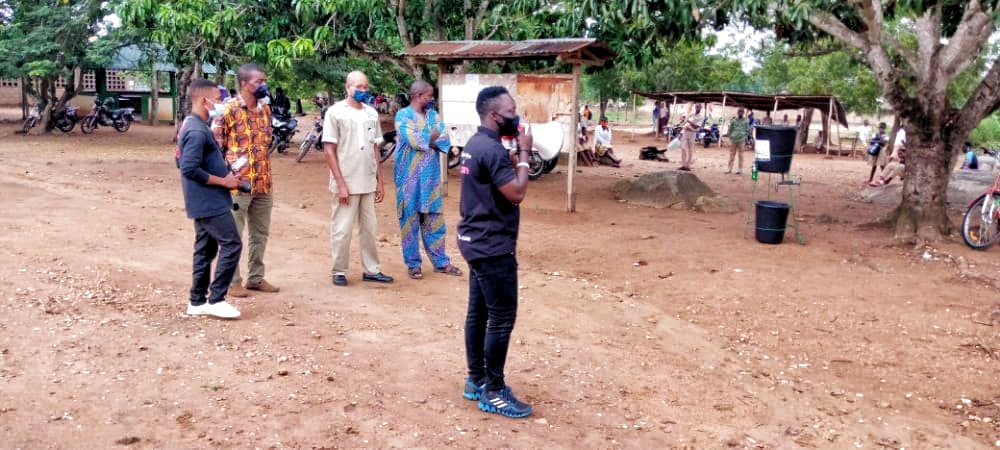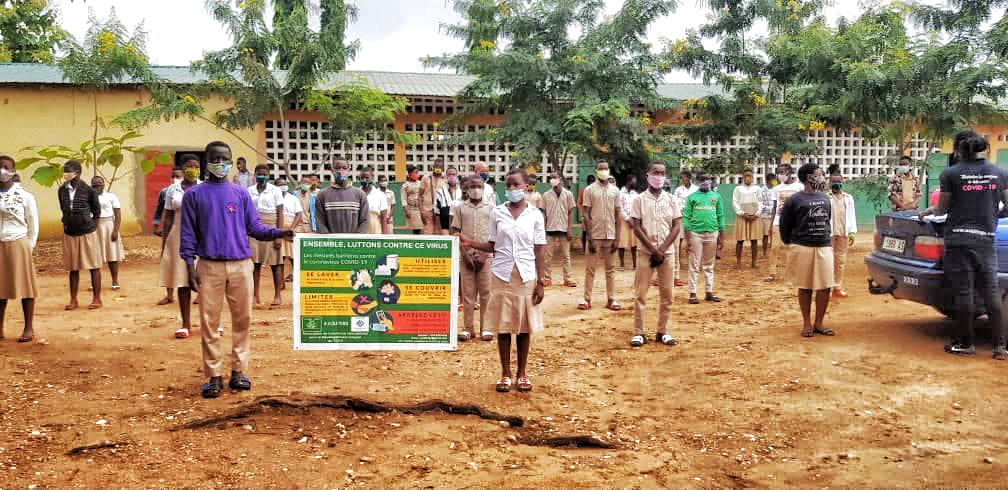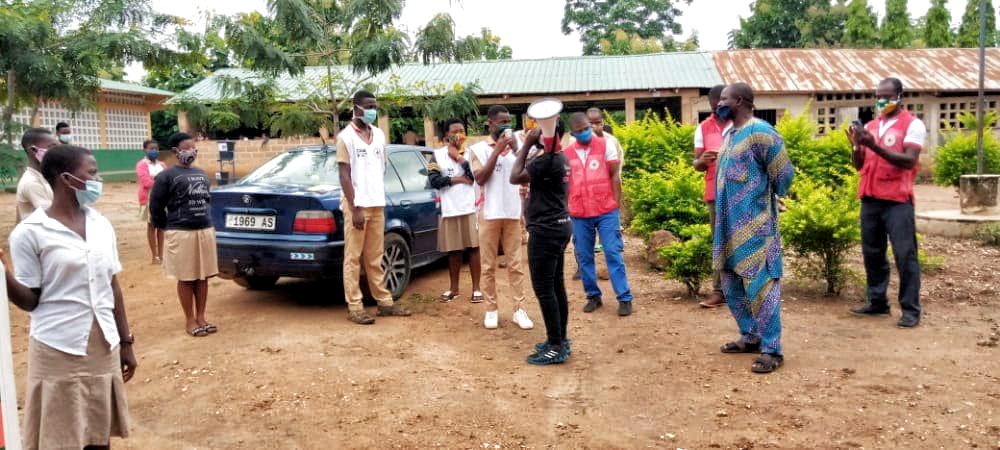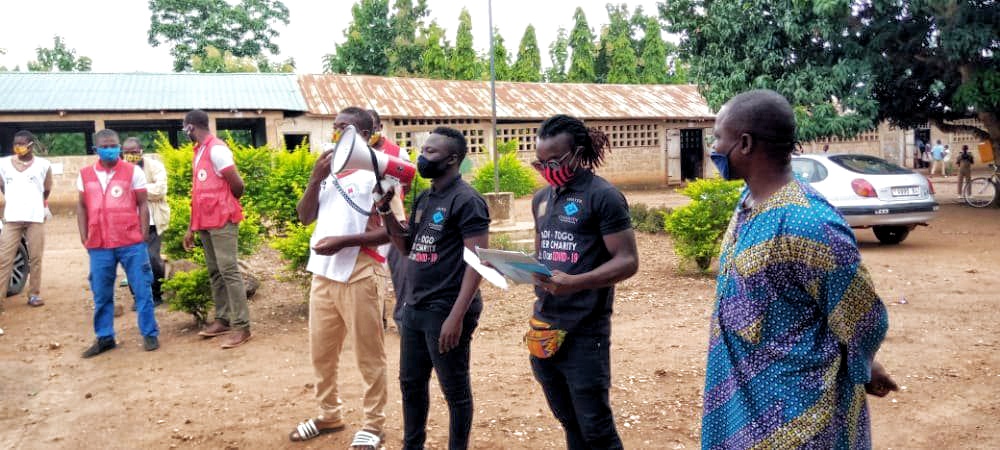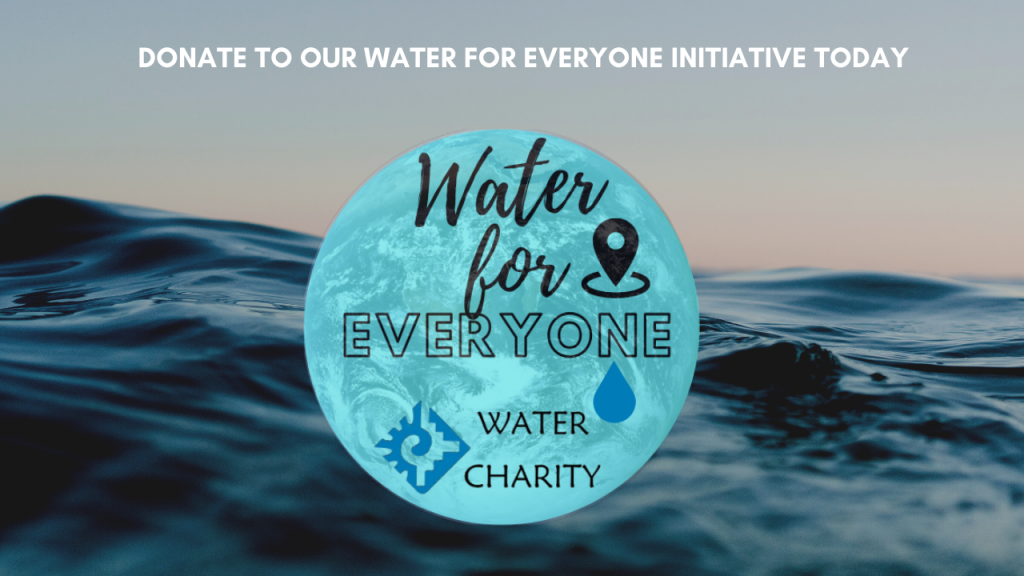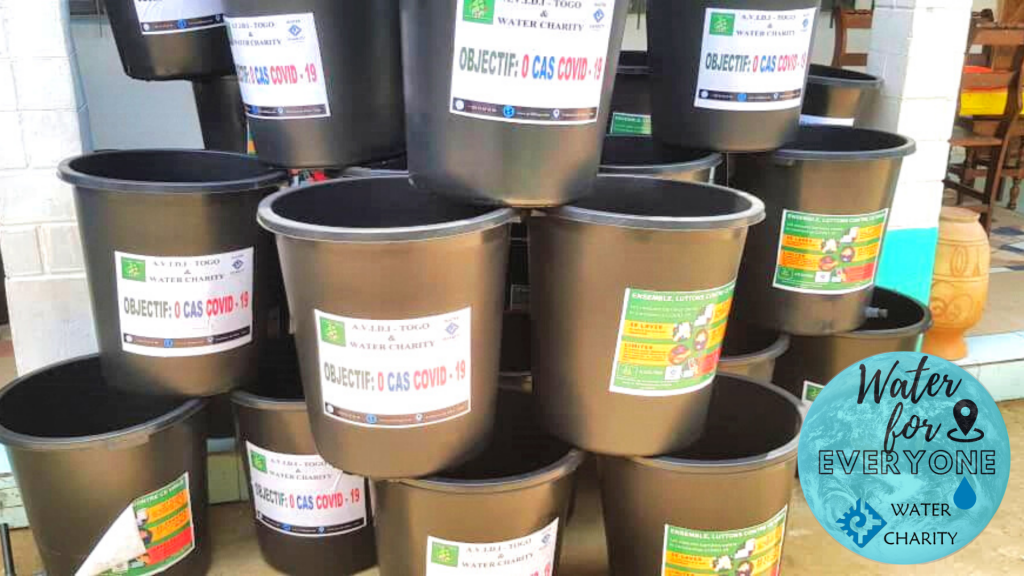
Phase One
The Coronavirus pandemic has created challenges across the globe and affected populations in every continent, region, and country. An opportunity we found to work amid these challenges was in reinforcing hygiene and sanitation practices through the help of our local partners.
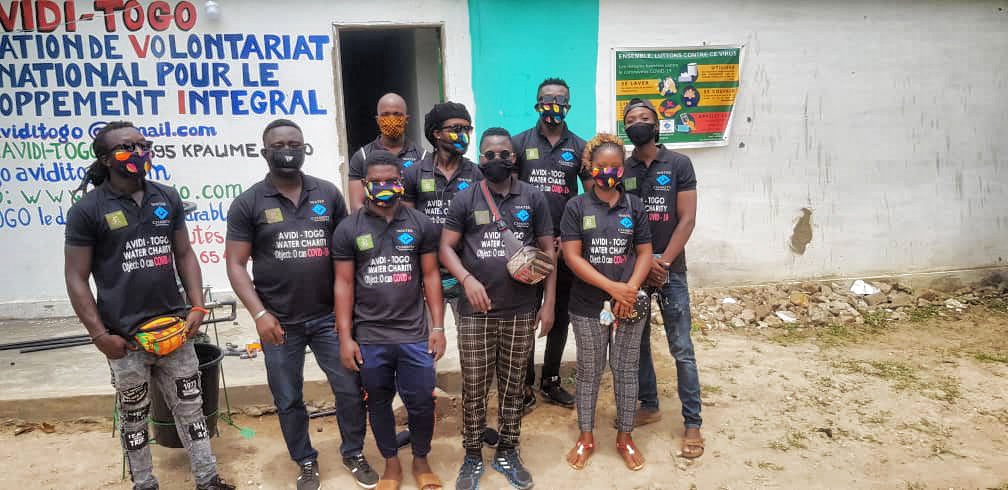
AVIDI-TOGO has been a wonderful partner for Water Charity in Togo and through the opportunities we have had to partner together, they are recognized for their commitment to quality work and honest practices in the Kpalime area of the Plateaux Region in Togo.
With AVIDI we worked directly with local metalworkers to “invent” handwashing stations that are foot-pedal operated and require no direct contact with the device. This inventiveness went a step further as members of the AVIDI team have experience making their own liquid hand soap – as a result the entire AVIDI team was put to work.
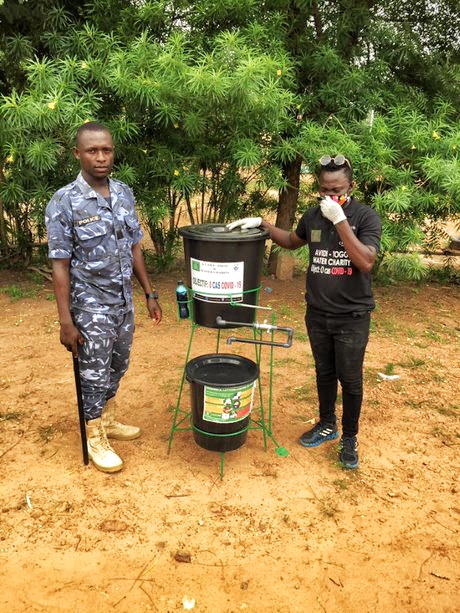
Phase One of our Handwashing & Hygiene initiative in Kpalime made it’s debut in March, with 70 handmade handwashing stations installed around the various districts of the city, serving an estimated population of 80,000 people. The installed stations were accompanied by 24oz bottles of liquid hand soap, being resupplied by the AVIDI team.
We chose to broadcast over the radio multiple times a day for several weeks about the importance of wearing masks and washing hands in public and at home, and we produced and shared over 2,000 flyers around Kpalime highlighting additional sanitary practices during the heightened time of Coronavirus.
AVIDI focused more heavily on the marketplace, where day-to-day trading and activities continued through the height of the Coronavirus outbreak in Togo, with limited social distancing and limited access to sanitary practices in the marketplace itself. Here we were able to use megaphones in conjunction with our installed handwashing stations to remind vendors and customers of the importance of handwashing practices and the wearing of masks.
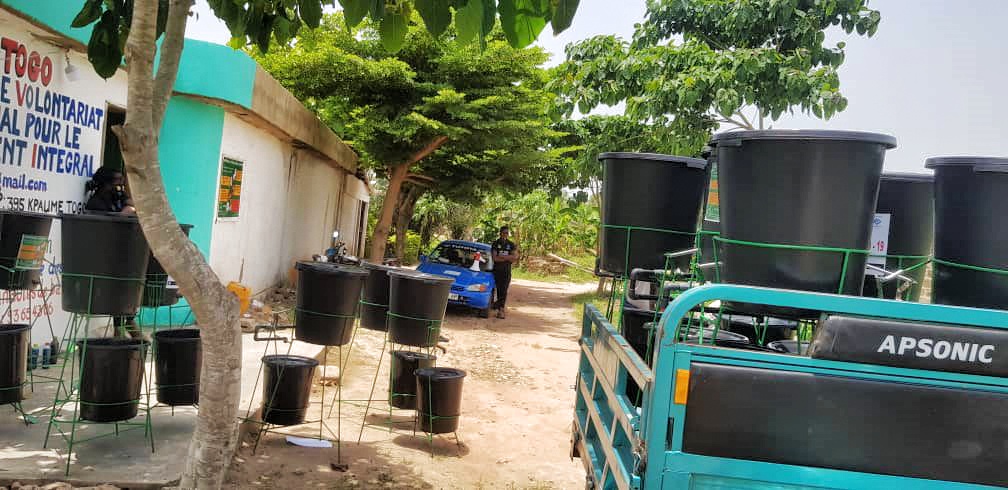
Phase One of our initiative was certainly counted as a success, the mayor of Kpalime even personally meeting with AVIDI President Amen Aguda to thank him and displaying AVIDI’s hygienic practices poster on the front wall of the city administrative building. Kpalime’s COVID-19 case count has been very low and controlled after an initial scare and outbreak back at the beginning of March.
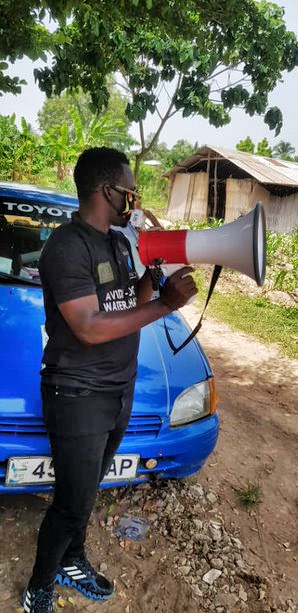
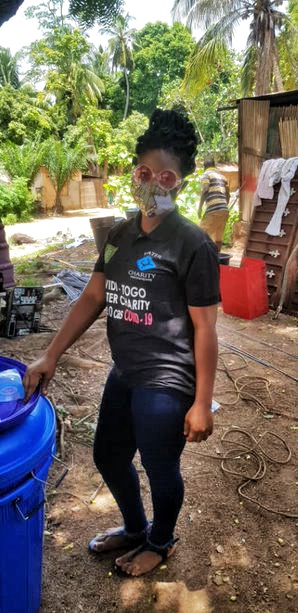
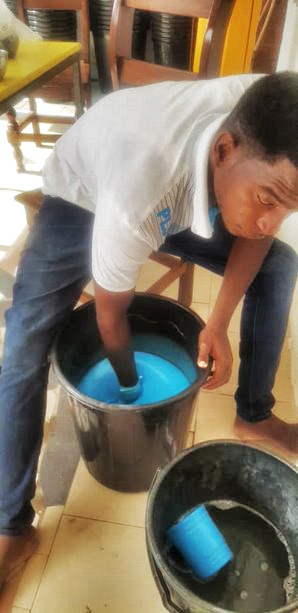
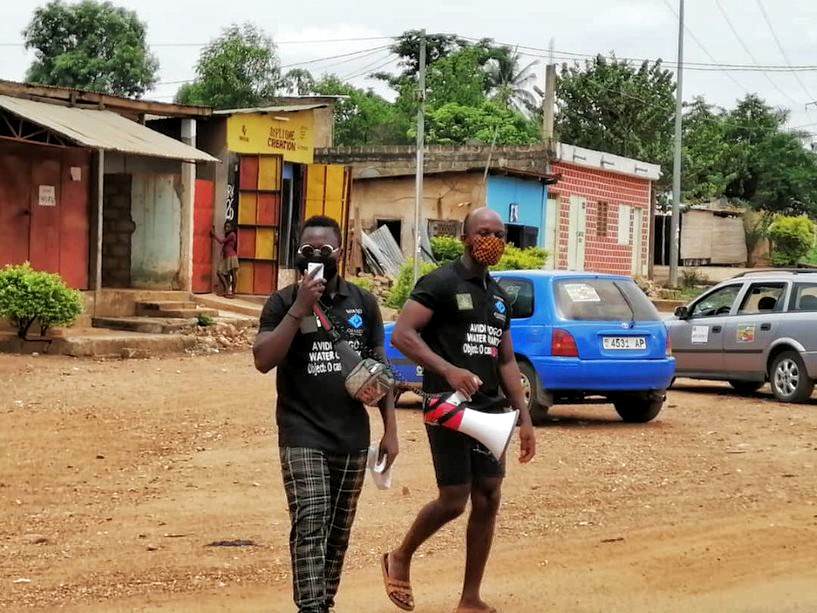
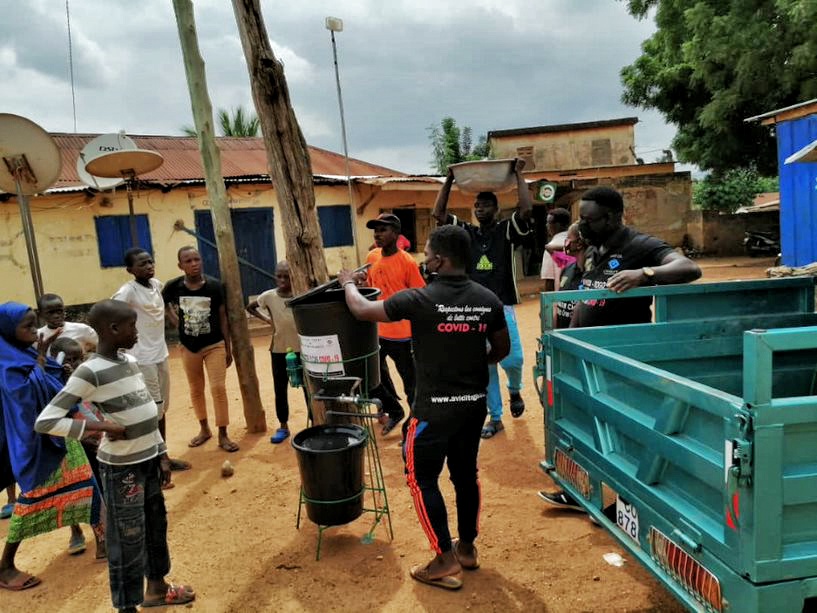
Phase Two
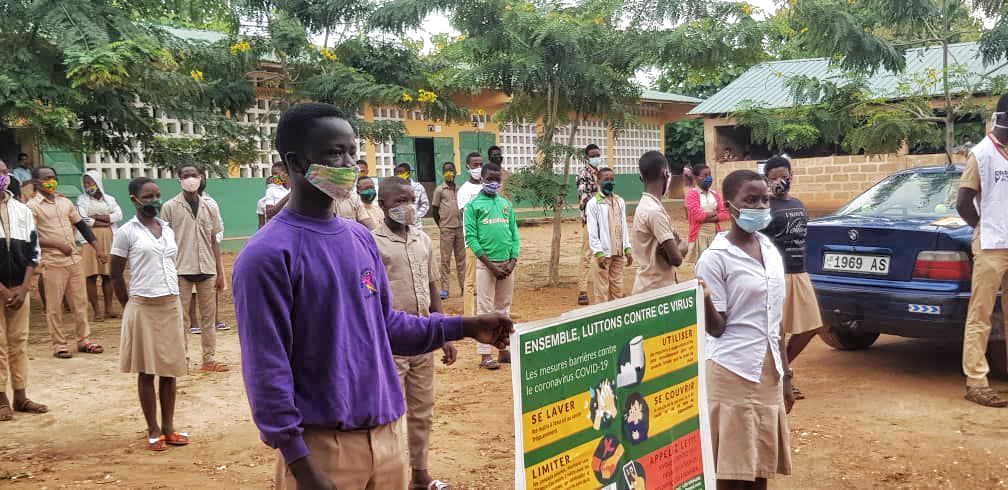
The second phase of our Handwashing & Hygiene initiative in the Kpalime region coincided directly with the re-opening of schools in the region and was crucial in teaching sanitary practices to kids and students of a broad age range.
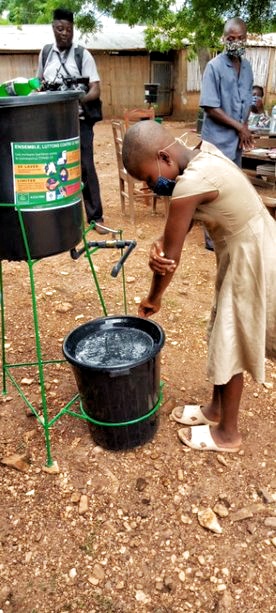
The Kpalime area counts 18 schools and so we were able to fabricate an additional 30 handwashing stations, with larger schools getting more than one installation. With AVIDI’s help we timed this work to take place in the first two weeks of students being back in classrooms – now equipped with their masks and physically distanced in ways not considered prior to the pandemic.
AVIDI’s team visited all 18 schools and organized a teaching exercise lasting about 15-20 minutes where general hygiene practices were shared, and then a specific highlight on the dangers and easy transmission of COVID-19 took place, including the installation and demonstration of the handwashing stations.
The focus on schools is crucial and our hope is certainly that this information is retained and results in the students practicing these taught behaviors at home and encouraging family members to do the same. Our goal moving forward is to incorporate continued Handwashing & Hygiene trainings whenever we implement clean water projects, whether that be with additional handwashing stations or various other methods.
